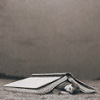
Over the holidays, I read two very different books.
1. "Watership Down" by Richard Adams- This is not the type of book I normally enjoy. There were tons of characters and the story was all over the place, with a lot of backstory. However, I couldn't help but be enthralled by this book. I love animals, and this book used a combination of science fact and fiction to create a good story. There were also elaborate choices done with language. I loved some of the names, like Woundwort or Fiver. This book is a success because Adams really did succeed at creating such a believable and compelling world. It's definitely not a children's book.
2. "The Rape of Nanking" by Iris Chang. This book came to my attention due to Iris' recent suicide. I found this book a compelling, but disturbing read. It basically traces the history of the rape of Nanking, which happened in 1937, when the Japanese invaded Nanking, China. The Japanese soldiers ravaged and plundered Nanking, killing millions of people and torturing them in various disgusting ways. This book was so disturbing that I had to read it in small amounts, as I would feel gross if I read large chunks. I was compelled to read this one as I read some praise about it which said that Iris Chang was a great historian because she could recount history in a way that was like storytelling, and was non-academic. I'm a great fan of plain language writing, and storytelling. I respect academics, but I know inherently that I am not an academic, and I have a greater respect for books that appeal to a greater audience. This is such a book. If you are interested in military history, human rights violations, or Asian history, please pick this up. While reading this, I had two great revelations-
1. I read many, many books like this one when I completed my International studies degree, as I specialized in ethnic relations. I'm surprised that I've forgotten how many books that I've read on genocide.
2. I am very happy that I took history classes in university. I did not major in history, but I took the history of Europe in the 20th century, the history of British imperialism, Russian history, and Asian history. These classes really opened my eyes and broadened my cultural understanding.